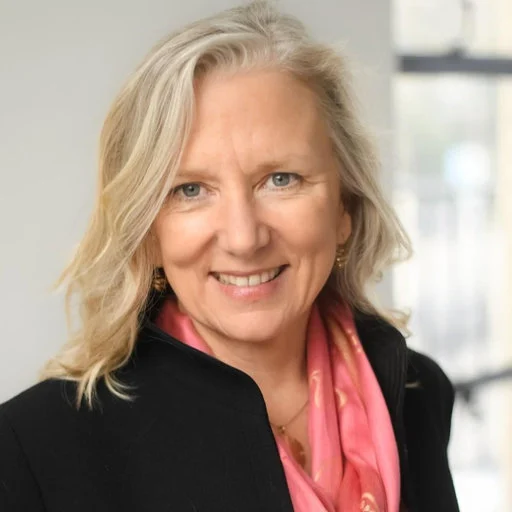New York Climate Week Event

Quotes from the event

Eamon Ryan
Climate and Clean Air Coalition High Level Advocate, Former Irish Minister of Transportation, Environment, and former Green Party leader
"We can change the market, particularly for the likes of LNG…. In my mind, that's one of the key issues coming up in COP 30 that can be [gotten] over the line…. So, while we should be somber and realistic and [we should be] pulling the [methane] emergency brake and calling out the alarm, there is another side of this methane story that actually could give people some hope.”

Adalberto Maluf
National Secretary of Urban Environment, Water Resources & Environmental Quality, Ministry of Environment and Climate Change, Brazil
"What are we going to tell society when we all meet at COP30 in Belem? Are we going to say, look, unfortunately, these [goals we adopt] are not as ambitious, that we are not on track for [avoiding] 1.5 [degrees of warming] and actually we're not even on track to [avoid] 2 degrees of warming, so that's life, you know, let's wait for the next round of NDCs? No, we can't wait. We don't have any other option."

Daphne Wysham
CEO of Methane Action
Moderator
"What we were thinking when we pulled this event together was how critical it is to connect our colleagues in Europe with those of us working in North America at this moment in time. There is currently a $750 billion deal on the table between the US and the EU to export LNG, liquefied natural gas, and the Global Methane Pledge is, of course, at a halfway mark, and agricultural emissions are also continuing to rise."

Durwood Zaelke
Founder of the Institute for Governance and Sustainable Development
“The promises and pledges of the past have helped socialize the methane opportunity. But in today’s climate emergency, we can’t continue to rely on promises. It’s time for mandatory mitigation imposed by a binding methane agreement starting with the oil and gas sector.”

Constantin Zerger
Head of Energy Department at Deutsche Umwelthilfe
“European leaders must stand firm and show that they will not side with Trump on environmental issues. Precisely because the EU imports large amounts of harmful LNG from the US, the European Commission needs to introduce a strong import standard for methane. Ultimately, to ensure energy security and guarantee affordable energy for all, the EU must phase out gas as quickly as possible.”

Justin Mikulka
Communications Director at Oilfield Witness
We know from US-based science that LNG is worse than coal. With methane certification in my opinion we're getting sold another delaying strategy and told it is a climate solution…. There is no path to addressing climate change and reducing emissions that involves using more methane…. [US Energy Secretary] Chris Wright made his money in the fracking industry. He knows how dirty it is. He knows there is no way for the US to ever meet the EU regulations.”

Nusa Urbancic
CEO of Changing Markets Foundation
We have huge meat and dairy companies that have most of their methane within their supply chains and these companies also have huge resources that they should be investing in solutions and supporting farmers, either with technical measures or with transition towards other ways of producing food…. It's going too slowly. We also need regulation when it comes to Big Meat and Big Dairy companies because it's not about [individual] farmers. These are huge corporations. They have resources to act, and they're not really investing in these solutions.”

Ken Alex
Leader at the Subnational Methane Action Coalition
“About 70% of action on climate is at the sub-national level. For example in South Korea, sub-national governments are working on waste and making really remarkable progress, something like 97% reduction in organics. There are also efforts around the world to deploy bio-covers at the sub-national level, which are inexpensive responses to methane emissions from landfills. In Catalonia and California, the two jurisdictions that we're aware of that have methane reduction requirements for agriculture, there are efforts around biogas and recovery of agricultural waste.”

Jens Huerdler
Senior Expert Air Quality at Deutsche Umwelthilfe
"We must utilise all the political approaches and solutions available to us to reduce methane, particularly from agriculture. To achieve this, we must also prioritise air pollution control. At the moment the revision of the Gothenburg Protocol and an EU-based implementation called the National Emissions Reduction Commitment (NEC) is time-sensitive. We can also address methane as a precursor for air pollution control problems (for example, methane is a precursor of ground-level ozone)."
The 2021 Global Methane Pledge (GMP), currently signed by 159 countries, promises to cut methane emissions 30% by 2030. Yet methane emissions have actually risen since 2021 and are accelerating. While the GMP 30% goal isn’t totally out of reach, fulfilling it will be a challenge.
We need to meet it. Methane has a powerful influence on near-term warming, so cutting it fast would act like a climate emergency brake, slowing warming before we reach irreversible tipping points, and keeping the 1.5-2 degrees C guardrail set in the Paris Agreement in sight.
This September 24 Climate Week NYC event followed a high-level discussion on lowering methane at the United Nations earlier the same day. At the event, hosted by Deutsche Umwelthilfe, Methane Action, LINGO, and IGSD, leading advocates, scientists, and policy experts presented and answered questions about meeting today’s methane emergency, how the fossil fuel, meat, and dairy lobbies are pulling us in the opposite direction, and what we can do now to bend the methane emissions curve back down.

Hosted by




